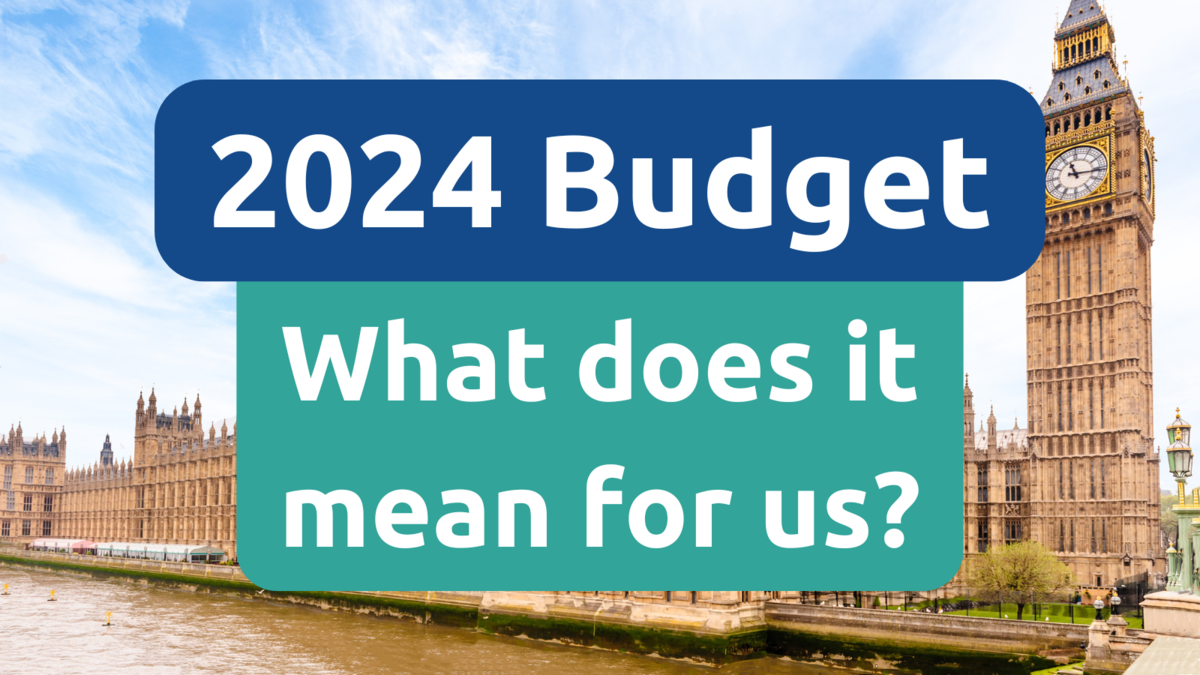Budget 2024: Key take aways and our thoughts

On 30 October, Rachel Reeves MP, the Chancellor of the Exchequer, delivered the Budget Statement in the House of Commons.
We’ve highlighted some of the key findings and how they relate to our campaign goals below.
Children’s social care
- £600 million of new funding for local authorities to support social care
- An additional £250 million in 2025/26 aimed at testing measures to support children who need social care.
The Independent Review of Children’s Social Care in 2022 recommended £2.6 billion over four years for a comprehensive reform program, highlighting the need for systemic change. Therefore, the proposed funding allocation is insufficient to address the ongoing crisis in children's social care.
SEND
- An additional £1billion for SEND provision
- Increases in school and college funding
- Increasing the funding for breakfast clubs
- Additional funding for local government
- Changes to Carers’ Allowance, so carers can earn more before losing the allowance
According to the Chancellor, the £1 billion increase in funding for SEND services, is intended to reform the provisions, improve outcomes for vulnerable children, and ensure financial sustainability within the system.
While this funding announcement is welcome, the 6% increase in funding is only for a year and doesn't address the long-term funding challenges. Also, concerns remain about its direct impact on children.
Lynette Barrett, CEO of National Star, pints out that the funding does not address the £4 billion deficit accumulated in local authorities’ SEND budgets.
Matt Keer, SEND Finance and Statistics Expert at Special Needs Jungle, explained:
“The £1 billion for SEND announced in yesterday's budget will be added to the main education funding pot distributed annually to local authorities and academies. This funding will arrive in April 2025, covering only one year, with longer-term financial plans expected in the spring.”
Keer added:
“Going by what the Treasury is saying, they don't expect that much of this £1 billion to actually reach schools—most of it will be used to plug existing local authority deficits.”
According to the Disabled Children’s Partnership, any financial allocation must be accompanied by urgent reforms that include, among other measures, ensuring that “local authorities, health services, schools, and other parts of the system are held accountable for fulfilling their legal duties and addressing the needs of children with SEND.”
VAT on private school fees
Beginning in January 2025, the government will impose a 20% VAT on private school fees. This change will mean higher costs for parents who fund specialised private education independently, rather than through placements funded by Local Authorities for children with Education, Health and Care Plans (EHCPs).
For families whose children are privately enrolled in special schools, but without an EHCP-mandated placement, this additional tax could lead to significant financial strain.
We remain committed to advocating for the necessary actions to ensure that every child and young person with SEND receives the education to which they are legally entitled.
Mental Health
- £26 million funding for new mental health crisis centres
The announcement of this funding is welcome. However, it is crucial to emphasise that early intervention plays a critical role in identifying needs promptly and offering preventative, low-level mental health support and advice (CYMHC, 2021). Despite this, less than 3% of NHS investment is in preventive or health-enhancing interventions (Centre for Mental Health, 2021).
According to Dr Sarah Hughes, Chief Executive of Mind:
“This Budget has shown glimmers of hope for mental health, but it has not delivered the changes needed to help create a mentally healthier nation… We can’t wait for people to reach crisis point before we intervene. Sustained investment is required for the whole mental health system…’’
Andy Bell, chief executive at Centre for Mental Health, said:
“With mental ill health costing the economy and society over £300 billion every year – double the entire NHS budget – this is an issue we cannot afford to ignore. The Government must take bolder action to build a mentally healthier future for the UK.”
Final thoughts
Styliana Pasiardi, Campaigns and Advocacy Officer – Together Trust:
‘‘While the proposed funding allocations indicate an awareness of the pressing issues facing vulnerable children and families, the amounts fall short of what is needed for meaningful reform.
Notably, Andy Burnham, the Mayor of Greater Manchester will become one of the first in the country to gain integrated settlements, granting him meaningful control of funding in the local area.
This new funding model could empower Greater Manchester to respond more flexibly and effectively to the needs of its communities. It could foster a more holistic strategy that encompasses not only children’s social care and SEND, but also transport accessibility which we are campaigning for, ensuring that families can access the services they need’’.





